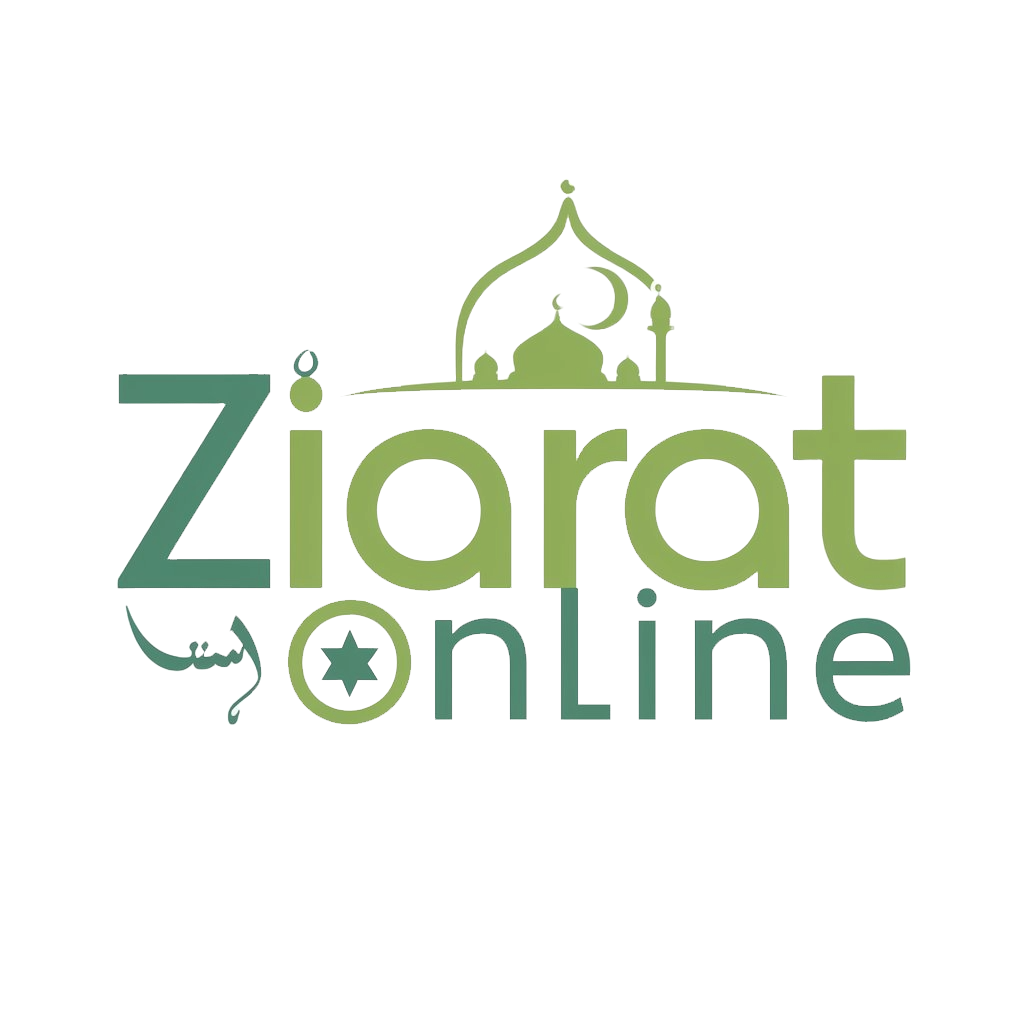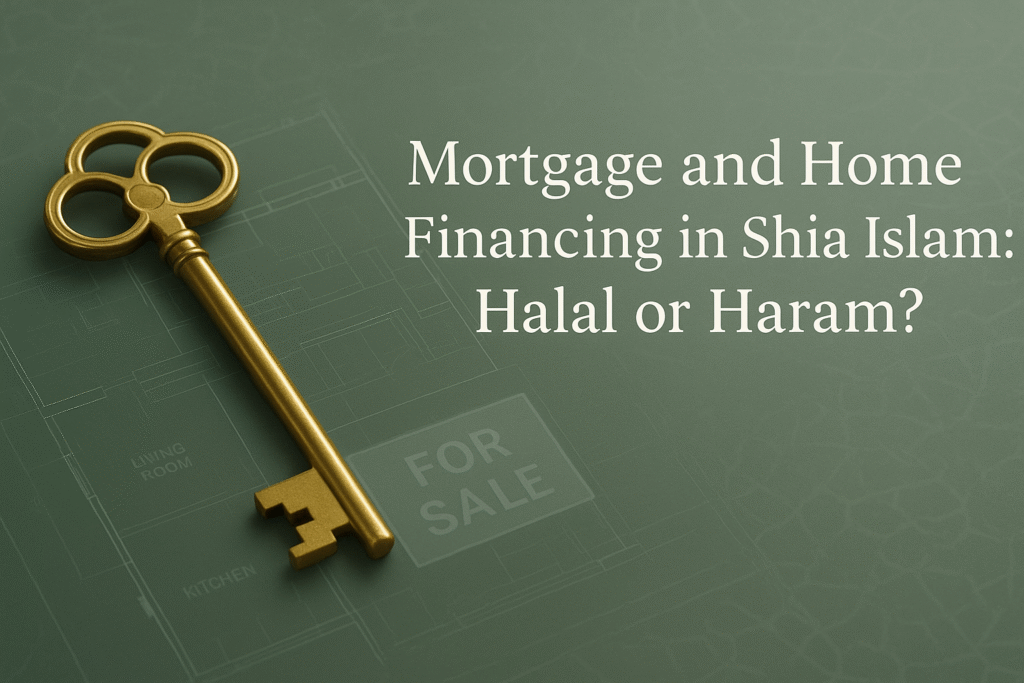- Introduction: The Dream of Homeownership in a Modern World
- The Fundamental Problem: Why Conventional Mortgages Are Problematic
- The Prohibition of Riba (Interest) in Islam
- The Element of Gharar (Uncertainty)
- Understanding Islamic Home Financing Principles
- The Concept of Asset-Backed Financing
- Key Sharia-Compliant Structures
- Diminishing Musharakah (Declining Partnership)
- Murabaha (Cost-Plus Sale)
- Ijara with Ownership (Lease-to-Own)
- Guidance from Shia Marjas: Navigating Modern Fatwas
- The View of Ayatollah Ali al-Sistani on Mortgages
- The View of Ayatollah Ali Khamenei on Mortgages
- The Principle of Necessity (Darurah)
- Practical Steps for a Halal Home Purchase
- Debunking Common Misconceptions About Islamic Mortgages
- Conclusion: Achieving a Halal Home Without Compromise
- Frequently Asked Questions (FAQ)
- References and Further Reading
Introduction: The Dream of Homeownership in a Modern World
For many, owning a home is a cornerstone of financial stability and family life. However, for devout Shia Muslims, this dream is fraught with a significant religious dilemma: the conventional mortgage. Built on a foundation of interest (Riba), which is unequivocally forbidden in Islam, the standard mortgage contract presents a major spiritual hurdle. This leaves many asking: is there a halal way to buy a house? This article delves deep into the Islamic ruling on mortgages, explores the practical halal home financing alternatives available, and provides clear guidance based on the fatwas of leading Shia scholars. We will navigate the complex intersection of faith and finance to find a path to homeownership that aligns with the principles of Shia Islam.
The Fundamental Problem: Why Conventional Mortgages Are Problematic
The Prohibition of Riba (Interest) in Islam
The primary and most significant issue with a conventional mortgage is its inherent reliance on interest. The Quran is explicit in its condemnation of Riba:
- “…But Allah has permitted trade and has forbidden interest…” (Surah Al-Baqarah, 2:275)
- “…O you who have believed, fear Allah and give up what remains [due to you] of interest, if you should be believers.” (Surah Al-Baqarah, 2:278)
In a conventional mortgage, the bank lends you money, and you repay a significantly larger amount over time. This predetermined, guaranteed increase is the very definition of Riba. It is considered exploitative because the bank earns profit without sharing in the risk of the asset itself. Therefore, engaging in an interest-based mortgage is considered haram (forbidden) by consensus.
The Element of Gharar (Uncertainty)
Furthermore, some scholars point to elements of Gharar (excessive uncertainty and risk) in modern mortgage contracts. Fluctuating variable interest rates, complex penalty clauses, and insurance requirements can introduce ambiguity and risk that contravene Islam’s requirement for transparency and fairness in financial agreements.
Understanding Islamic Home Financing Principles
Islamic finance is not about simply avoiding interest; it’s about structuring transactions based on ethical and shared-risk principles.
The Concept of Asset-Backed Financing
Unlike conventional lending, which is money-for-more-money, Islamic finance is always asset-backed. The financial institution must have a tangible, Islamically permissible asset involved in the transaction. This means the bank must truly own the asset (or a share of it) before selling or leasing it to you.
Key Sharia-Compliant Structures
Several models have been developed to facilitate halal home ownership:
1. Diminishing Musharakah (Declining Partnership)
This is one of the most common and preferred models. In this structure:
- Partnership: You and the Islamic bank form a partnership to jointly purchase the property. You might contribute a 10% down payment, and the bank provides the remaining 90%. You now own 10% of the home, and the bank owns 90%.
- Lease: You then lease the bank’s share of the property and pay them rent.
- Ownership Transfer: Simultaneously, you gradually buy the bank’s share in increments. With each payment, your ownership stake increases, and the bank’s decreases (hence “diminishing”).
- End Result: Once you have bought the entire share, the partnership dissolves, and you become the sole owner. The profit rate or rental amount is agreed upon upfront and is not interest.
2. Murabaha (Cost-Plus Sale)
This is a simpler, trade-based model:
- Agency: You find a property and ask the bank to buy it for you.
- Purchase: The bank buys the property, taking on full ownership and risk.
- Sale: The bank immediately sells the property to you at a higher price (a pre-agreed profit margin), payable in installments over time.
- Key Point: The profit margin is fixed and transparent, replacing interest. The bank must take genuine ownership risk for the transaction to be valid.
3. Ijara with Ownership (Lease-to-Own)
This model is structured as a lease that culminates in ownership:
- Lease: The bank buys the property and leases it to you for a fixed period.
- Payment: Your monthly payment consists of two parts: rent for using the property and a principal payment to purchase it.
- Transfer: At the end of the lease term, or once a certain amount is paid, ownership is transferred to you for a nominal fee.
Guidance from Shia Marjas: Navigating Modern Fatwas
The practical application of these principles is guided by the rulings of our contemporary scholars.
The View of Ayatollah Ali al-Sistani
Ayatollah Sistani’s position is that conventional interest-based mortgages are impermissible. However, he has provided a specific solution for Muslims living in Western countries where Islamic finance is not readily available. He allows obtaining an interest-based mortgage out of necessity (darurah), but with a crucial condition: the borrower must have “a feeling of remorse and displeasure” and must “not consider the interest permissible” in their heart. They must also intend to pay off the loan as quickly as possible to minimize interest payments.
The View of Ayatollah Ali Khamenei
Ayatollah Khamenei also firmly prohibits dealing in interest. He emphasizes seeking out Sharia-compliant alternatives wherever possible. If no alternative exists and the need for a home is extreme, the principle of necessity may be applied, but this is seen as a last resort. His office often encourages the development of and participation in formal Islamic banking systems.
The Principle of Necessity (Darurah)
The concept of darurah allows for normally prohibited actions when a Muslim is facing extreme, genuine necessity where no halal alternative exists. However, scholars caution that this is not a blanket permission. The necessity must be real and pressing, and all halal avenues must be exhausted first.
Practical Steps for a Halal Home Purchase
- Save for a Down Payment: Build a significant down payment to minimize the amount you need to finance.
- Research Islamic Banks: Seek out institutions that offer authentic Diminishing Musharakah or Murabaha products.
- Explore Co-ownership Models: Consider partnering with family members in a private Musharakah arrangement to pool resources.
- Rent-to-Own Agreements: Explore direct rent-to-own agreements with homeowners, which can be structured to avoid Riba.
- Consult a Knowledgeable Alim: Before signing any contract, have it reviewed by a scholar well-versed in Islamic finance to ensure its compliance.
Debunking Common Misconceptions
- Misconception 1: “The bank’s profit in an Islamic mortgage is just interest under a different name.”
- Reality: The key difference is risk and asset ownership. In Murabaha, the bank must own the asset. In Musharakah, the bank shares in the ownership risk. In a conventional mortgage, the bank simply lends money and takes no asset risk.
- Misconception 2: “If I have a conventional mortgage but hate the interest, it’s okay.”
- Reality: While scholars like Sistani provide this concession out of necessity, it is still a concession for a less ideal situation. The goal should always be to find a truly halal alternative.
- Misconception 3: “All Islamic finance products are halal.”
- Reality: Unfortunately, some products are marketed as “Islamic” but may not fully comply with all principles. Due diligence and scholarly review are essential.
Conclusion: Achieving a Halal Home Without Compromise
The journey to halal home financing in Shia Islam requires diligence, education, and a sincere intention to uphold the boundaries set by Allah (SWT). While the conventional mortgage is clearly problematic due to its basis in Riba, the development of Islamic home financing models like Diminishing Musharakah provides a viable, ethical alternative. The fatwas from Marjas like Sistani and Khamenei provide crucial guidance, allowing for concessions in cases of genuine necessity but always urging believers toward the most permissible option.
The path may be more challenging, requiring more savings, research, and patience, but the peace of mind that comes from knowing your home is acquired through halal means is invaluable. It

